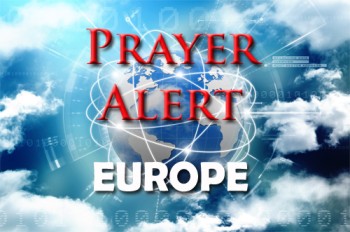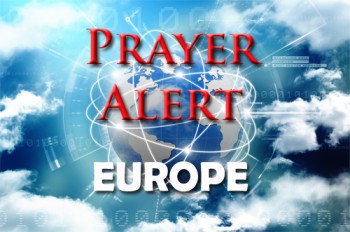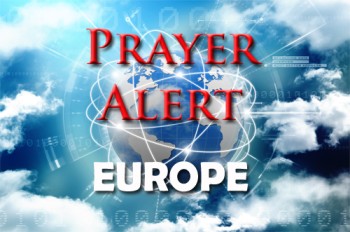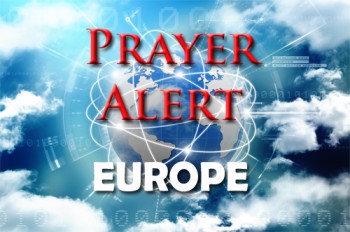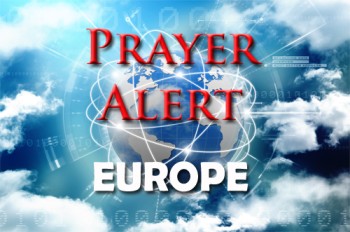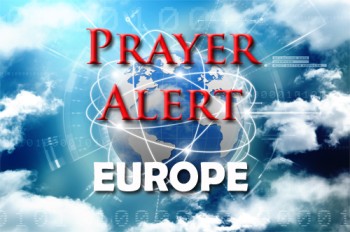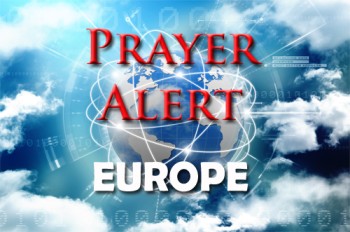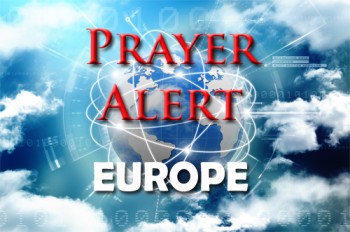Displaying items by tag: Europe
Ukraine: why is it one of the world’s most digital countries?
On the day Russia launched its full-scale invasion of Ukraine in 2022, Deputy Minister Oleksandr Bornyakov was caught in a firefight in Kyiv. Despite the chaos of war, Bornyakov and his team pressed forward with Ukraine’s ambitious digital transformation project: the Diia app. Launched in 2019, Diia enables citizens to access over forty government services and thirty personal documents - from tax payments to voting in Eurovision - directly from their mobile phones. A web portal adds access to 130 services. Now serving over 22 million users, Diia is considered one of the world’s most advanced digital government services. Its success stems from Ukraine’s large, affordable tech workforce and the foundational development of a centralised data exchange. The urgency of war accelerated innovation, enabling the swift rollout of wartime tools like damage compensation and troop reporting. Looking ahead, Ukraine plans to incorporate AI to make services even more seamless, but experts advise caution about this.
Sweden: Think Pink CEO convicted in environmental crime case
Entrepreneur Fariba Vancor has been sentenced to six years in prison in what is considered Sweden’s largest environmental crime case. As CEO of the waste company Think Pink, Vancor oversaw the illegal dumping of hundreds of thousands of tonnes of toxic waste across nineteen sites. The court found that Think Pink, which was contracted by municipalities and private clients to manage waste, instead abandoned dangerous materials including PCBs, mercury, lead, and arsenic - threatening air, water, and soil quality. The judge described the company as operating like a pyramid scheme, with criminal negligence causing widespread environmental damage. Out of eleven individuals tried, ten were convicted: five received prison sentences and were ordered to pay approximately £19 million in damages. The case, which required years of investigation and 150 witnesses, resulted in a verdict nearly 700 pages long. Vancor has denied wrongdoing and may appeal.
Austria: national mourning after gunman kills ten
Austria has declared three days of national mourning after a 21-year-old former student fatally shot eight pupils and a teacher at his old high school in Graz, later taking his own life. A tenth victim, critically injured, has since died, and eleven others remain in hospital. Austria’s chancellor, Christian Stocker, called it a ‘national tragedy’, and the president said, ‘What happened today … strikes our country at the heart. These were young people who had their whole lives ahead of them.’ The gunman, armed with legally owned firearms, opened fire in two classrooms. His motive remains unclear as the investigation continues. Mass shootings are rare in Austria, even though the nation has one of Europe’s highest civilian gun ownership rates. In response to the tragedy, crisis teams are supporting affected families and the community. The mayor of Vienna stressed that hate and violence must not prevail, and European leaders have expressed deep sorrow and sympathy.
Belgium: latest signs of booming illegal sales of ketamine
Customs officers at Brussels airport were stunned when crates expected to contain ketamine were actually full of salt. Authorities believe the drug was diverted into the black market during its complex journey from India, exploiting loopholes in Europe’s varied regulations. Ketamine, classified as a medicine in some nations, is shipped legally through multiple borders, making tracking difficult. Criminals forge documents, use front companies, and manipulate legal supply chains to mask their operations. Since 2023, Belgian investigators have uncovered 28 similar cases involving an estimated 28 tonnes of ketamine. The drug’s illegal trade is growing so fast that gangs now profit more from ketamine than from cocaine. In the UK, ketamine use surged 85% in one year, linked to 53 deaths in 2023. Its legal use in hospitals complicates enforcement. European police forces are now coordinating with Indian authorities to stem the flow.
Ukraine: the Gospel is ‘unstoppable’
Evangelist David Karcha has said that even in the midst of war, Ukraine is seeing a profound spiritual awakening. He has described how churches have become sanctuaries of hope, drawing countless people to Christ. When Russia invaded in 2022, Ukrainian evangelicals chose not to flee but to remain, share in the suffering, and witness through faith. Karcha declared that while the Gospel is powerful in peace, it becomes ‘unstoppable’ in war. Across the country, churches are seeing thousands profess faith and be baptised, driven by deep spiritual hunger. Their acts of faith have created a unified movement no war can halt. Evangelicals minister on the frontlines, in hospitals, to widows, orphans, and the broken. The church serves not only physical needs but also hearts seeking hope. Thanking European churches for their love and support, Karcha says, ‘We listen. We pray. We help. Then, when we see how we can help and what can be gone, we speak Jesus.’
Russia: calls for retaliation after Ukraine’s audacious attacks
Following Ukraine’s audacious deep strikes on Russian strategic bomber bases, Moscow is facing mounting internal pressure to retaliate. While the Kremlin remains publicly silent pending investigation, media figures and bloggers have erupted with calls for harsh responses, including nuclear retaliation. Though such threats are not new in Russian rhetoric, the recent attacks - possibly disrupting Russia’s nuclear response capabilities - may challenge the limits of Moscow’s stated nuclear doctrine. An actual nuclear strike remains unlikely due to the immense diplomatic fallout it would trigger, particularly with key partners like China and India. A more probable reaction will take the form of intensified missile and drone attacks on Ukrainian infrastructure. As Ukraine’s Western allies ease restrictions on weapons use, the Kremlin may feel compelled to escalate, risking unpredictable consequences in an already volatile war. Meanwhile, the two sides have failed to make progress in ceasefire talks in Istanbul: see
Switzerland: village devastated by glacier collapse
The centuries-old Swiss village of Blatten has been devastated by a catastrophic glacier collapse. Prior concerns about the stability of the Birch Glacier had prompted authorities to evacuate all 300 residents and livestock. Days later, over nine million cubic metres of ice and rock cascaded down, obliterating homes, landmarks, and even the village church. The collapse, which registered on national seismic monitors, left Blatten buried in debris and triggered flood concerns by blocking the River Lonza. Experts described the destruction as ‘unprecedented’. Due to global warming, the rapid thaw of permafrost, long considered the glue of the Alps, is destabilising entire mountainsides. Although the timely evacuation saved lives (only one man is missing), the complete loss of the village has raised new alarms about the pace and impact of climate change on vulnerable mountain communities.
Germany: WW2 bombs defused after mass evacuation
Authorities in Cologne have safely defused three large American World War 2 bombs after evacuating over 20,000 people in what officials described as the city’s largest operation since the war. Discovered in a shipyard, the bombs triggered the evacuation of a densely populated 10,000 sq m area, including homes, shops, schools, a hospital, a major train station, and cultural sites. Bomb disposal efforts could only begin once every resident was accounted for, with police warning that refusal to leave would lead to forced removal and fines. Ambulances transported intensive care patients, while couples scheduled to marry at city hall were relocated. The city ground to a halt: roads were closed, public transit was suspended, and normally lively streets went silent. While WWII bomb discoveries are not uncommon in Germany, the size and impact of this operation were exceptional. Authorities praised residents cooperation and reminded the public to remain calm and prepared, underscoring the lingering dangers of past conflicts.
Ukraine: increasing use of a deadly new weapon
In Rodynske, Ukraine, devastation and fear hang in the air after a Russian glide bomb destroyed the town’s administrative centre and residential blocks. Russian attacks have surged, with Rodynske now facing direct strikes and drone assaults. Journalists encountered deadly surveillance and attack drones, evidence of Russian advances. Russia’s increasing use of fibre optic drones - immune to electronic jamming - gives it a tactical edge, making troop movements perilous. Ukrainian forces are racing to develop similar technology. Soldiers have described the extreme mental and physical toll, with deployments now stretching to months due to constant drone threats. Front lines are no longer clearly defined; infiltrations occur with motorcycles and quad bikes, creating fragmented, shifting battle zones. Civilians, returning to destroyed homes, bear witness to worsening conditions. With diplomatic efforts stalled, this evolving conflict grows more deadly by the day. Meanwhile, Volodymyr Zelensky, on a visit to Germany (where chancellor Friedrich Merz has promised more financial and military help), has warned that 50,000 Russian troops are massing on Ukraine’s eastern border, preparing for a massive new offensive. See
France: surgeon jailed for abusing 299 patients
Joel Le Scouarnec, once a respected surgeon, has been sentenced to twenty years in prison after admitting to sexually abusing 299 patients, mostly children, between 1989 and 2014. The judge said he took into account the fact that he targeted sedated and vulnerable victims. Although sentenced to the maximum term, Le Scouarnec has already served seven years and may be eligible for parole by 2030. Victims and their advocates expressed anger over the perceived inadequacy of the sentence. One survivor noted the lifelong trauma endured by victims while Le Scouarnec might eventually regain his freedom. The 74-year-old, already serving a 15-year sentence from 2020 for prior assaults, did not appeal the new ruling. His handwritten diaries documented the abuse in detail, aiding police in identifying victims - many of whom were unaware they had been assaulted. In court, Le Scouarnec acknowledged his crimes and expressed remorse, though survivors have questioned the justice system’s ability to match the gravity of such heinous acts.
